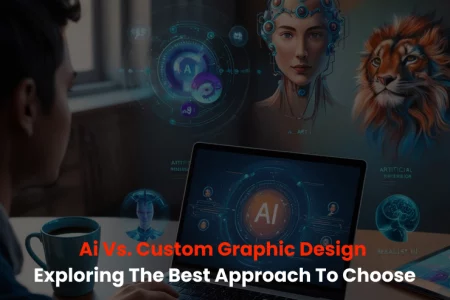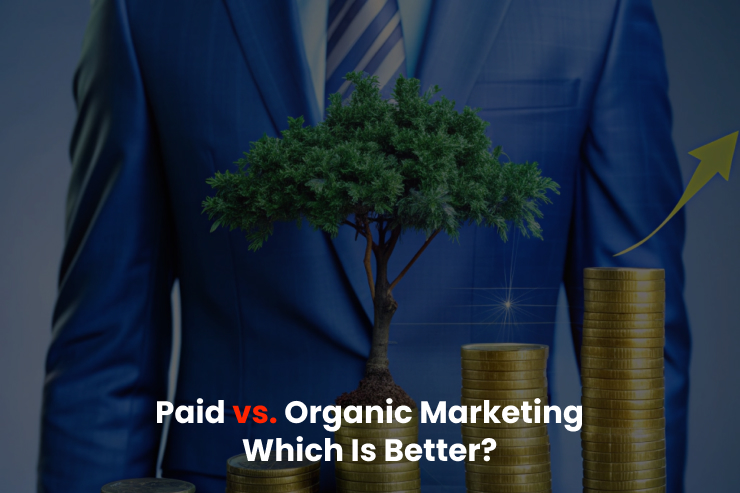Digital Marketing
Paid Vs Organic Marketing Which Is Better?
Digital marketing is not one-size-fits-all. Brands often use different strategies to reach and employ their audience, with the aim of driving traffic to their site and improving conversions. But one of the key distinguishing factors among these techniques is whether they are paid or organic marketing.
While these two types of marketing can definitely work together to bring out something remarkable, it’s still significant to understand their differences if you want to ensure you’re utilizing the right fusion of marketing strategies for your brand. Comprehending the differences between organic and paid marketing aids in visualizing how each of them can contribute to our digital marketing strategy. Let’s know more about organic vs. paid marketing to decide where to invest.
What is organic marketing?
Organic marketing, unlike paid marketing, is actually the promotion of your business using free methods and channels. As the name suggests, organic marketing influences customers through organic means, and a few of them are blog posts, content marketing over social media, influencer marketing, social media marketing, email marketing, etc.
Advantages of Organic Marketing
Here are a few advantages that organic marketing offers your organization:
-
Costs less than paid
When purchasing search engine ads, you might end up with a $20 acquisition cost rather than a $40 sale in certain businesses. But it cannot be attained in volume! It can’t be justified.
However, organic marketing costs are rather low. It costs nothing to arrange a Twitter account and start posting frequently to drive early traffic. A strong blog post or video script might cost $150+ to produce. But tens of thousands of target customers might view it over a period of years and change it into customers via something you paid for once.
-
Provides a robust and sustainable marketing base
If you run ad campaigns but don’t have a robust marketing foundation, the website traffic stops when you stop running ads.
But if you’ve participated in organic marketing content, keeping your target audience on social media, and using SEO strategies, you can make your online presence sustainable. Even when you are not running ads, you’ll still have a way to get new leads.
-
Help build relationships
Google and social ads give us some great tools to target those potential users who love your business, write remarkable reviews, and most possibly support your business by buying. Organic content here helps build relationships with customers, with the highest possibility of investing in your products, by creating content based on what people are looking for and where they are in the buyer’s journey.
They invest more in your brand when they come across the content provided by you that helps them understand and solve their problems in comparison to someone who just comes through an ad. It’s easy to persuade them to buy because they are already invested in your brand and its content.
-
Delivers a higher ROI
Organic traffic works even when you are not paying for it and keeps the visitors coming. Organic marketing content might need an initial investment, but the cost is often far more reasonable than frequently running ads. However, the money that you finance in content creators, SEO specialists, designers, and web gurus is just a profitable investment and pays generously if done right.
Email marketing is a perfect example of an organic marketing channel that offers a high ROI. With 99% of people checking their email every day, email marketing reaches and communicates with your audience successfully. And with low startup and operational costs, email has an ROI of nearly $38 for every $1 spent.
-
Non-Disrupting
You must have felt frustrated or irritated when you scroll through Instagram and see an ad that is blocking your feed or an SERP, as that keeps you from reaching the content you want to see.
Therefore, organic marketing is made on the premise that people only get to see useful and user-preferred content that they wish, leaving a better impact and an optimistic impression on the visitor.
-
Keep Audience Engaged
Today’s consumers buy only from the brands they feel related to and expect those brands to be reliable while adding value to the table. Any marketing strategy can help you connect with the consumers who are right for the company’s products or services, but organic marketing helps drive accurate engagement by:
-
- Educating an audience, responding to their questions, or educating them before they read a piece of content.
- Engaging people and prompting positive emotions, which they’ll ultimately learn to link with your brand.
- Encouraging and empowering consumers to make improved, smarter decisions that help them build their desired lives.
- Helping to convert curious consumers into qualified leads by using social media in your brand’s favor by posting pleasing and high-value content.
-
Builds durable Transparency
Paid advertising is an amazing way to generate quick bursts of traffic or get events like product promotions off to a running start. But it’s not sufficient to provide your brand with the lasting Transparency it needs to become a true strength to be estimated.
All-round organic marketing is all about living the long game when it comes to search engine optimization and brand building. It takes time, but definitely take your brand towards long-term success by not only maintaining your blog, website, and social media feeds but also looking for possibilities to guest post on other sites within your niche, collaborate with top influencers, and more.
-
Boosts brand appreciation
Not every person who stumbles upon your great products and services will make an instant purchase. But implausible marketing content and an amusing social media presence can persuade them to stick around anyway. Because people eventually purchase from brands they can relate to.
Great organic marketing content here helps by creating content with an exposition, ideas, and brand assets, enabling people to become familiar with your brand and increasing the possibility of choosing your brand when they are ready to make a purchase.
Also, this way you can build authority as an industry expert, which is a huge deal to Google these days for higher rankings.
-
Help qualify your leads
Undoubtedly, well-written content effectively takes things several steps further. By accurately instructing your visitors in many ways, you make your products the solution they are seeking. Over time, it can develop them from the buyer’s journey and convert them into fully competent leads.
Marketing content retains customers and makes them happy once they’ve made a purchase, teaching them how to get the most out of whatever they buy, besides introducing them to other products that might complement their purchase.
Downsides of Organic Marketing
Though the cons of organic and paid marketing are quite few in comparison to their benefits, they must also be considered before deciding which one to select.
-
Time-Taking
While the basics might seem basic, SEO is complex. Encouraging search-term phrases can take months or even longer to show up, depending on your competition for the phrase.
-
You’re never done
Organic marketing is a continuous process. There will always be space to enhance and optimize your site, and both content creation and SEO take a lot of work.
Cost of Organic Marketing
Like paid media, it’s challenging to give an exact price for organic marketing because the cost depends on the quality and quantity of organic marketing resources you prefer to invest in.
The cost and efficiency of organic marketing depend on how well it is performed. The better the digital marketing resources you put out, the stronger the return you will perceive, and the more you will probably spend.
However, factors like time, tools, technology, website development, social media management SEO, content strategy planning, content creation, and talent also hugely impact the cost of organic marketing.
What is paid marketing?
Paid marketing includes spending money on ads such as pay-per-click (PPC) on Google Ads, Facebook, and social media platforms, sponsored posts, and display advertising. Paid marketing is basically utilized to reach a large audience and drive traffic to your website rapidly.
Advantages of Paid Marketing
Here are just a few advantages that paid marketing can offer businesses of any size:
-
Build brand Awareness
It is helpful, specifically for small businesses, as it enables them to get noticed by offering visibility.
A paid marketing campaign helps develop reach and increase brand awareness quickly.
By using paid ads, you can make your brand visible to your ideal audience quickly by becoming visible at the top of the search engine results without having to pause for your organic content to set in.
-
Easy Sales Attribute
Paid marketing can help track the sales source easily. With Google Analytics, you can see how many people clicked on which ads and how many people converted into prospective customers.
Knowing which ads and landing pages are carrying out best enables you to maximize your ad spend by expanding the budget for ads that change and relate to similar strategies, besides addressing future ads for the best outcomes.
-
Offers upfront ROI measurement
Because it’s easy to attribute sales, measuring ROI is also very straightforward with paid marketing. With time and some basic analytics, you learn how many clicks you have to pay for before one of those clickers becomes a sale. You know the regular sale amount that drives that click, so you can do the evaluation to get a basic ROI.
-
Fast and easy to set up
Paid ads are rapid and easy to set up. It’s not about being easy to create and withstand successful digital marketing ad campaigns, but the tools on Google AdWords, Facebook, Instagram, and other ad platforms make it quite easy to get set up and start receiving impressions across devices.
Even if creating ad copy, descriptions, or landing pages isn’t your strong garb, it’s simple and cost-efficient to outsource those things to content creators who comprehend how to attract, induce, and convert through words and images targeting customer objectives.
-
PPC plays nice
PPC is not limited or expensive. It’s easy to integrate ads into organic social media marketing, email marketing, organic search marketing, and other marketing efforts, which means that you can use PPC ads to improve your organic marketing efforts.
-
Pay-Per-Click Rule
There is no need to make a huge initial investment; therefore, you can experiment with pay-per-click. If your ad becomes unproductive, you’ll know because people aren’t clicking. It proves that often your mistakes aren’t that costly. Because it’s about finding what works for you and is easy to scale.
-
Provide maximum control over incoming traffic
If you get more orders than you can achieve within a practical timeframe, you dissatisfy customers. With paid ads, you have more authority over this ebb and flow because you can increase or reduce ad spend and transparency mainly at will.
But while digital ads do provide some robust control over customer flow, they don’t give you as much control over when people see your ads. Timing is significant, along with the right message, time, and customer. That’s one of the critical points that organic content marketing surpasses. But it’s just the beginning.
Downsides of Paid Marketing
-
Non-proportional scale
In paid marketing, it isn’t easy to fairly raise budgets. For instance, if your campaign has brought good outcomes at $50 each day, raising your spend to $150 per day won’t essentially get you three times the outcomes, at least not instantly.
-
Full-Time Job Management
With the time it requires to build, manage, and optimize a campaign, you will either need to spend all your time or hire someone to do it for you. Pointing, goals, inventiveness, and reporting all need to be managed and updated in the end.
-
Innately temporary
Paid ads are like a valve. When your campaigns are successive, the faucet is on, and you relish a steady stream of traffic, clicks, and conversions. And as soon as it turns off, they’re gone.
Cost of paid marketing
Paid marketing costs can vary depending on advertising platforms, keyword phrases, and industries. For instance, the most expensive keywords in Google Ads cost more than $50 per click, while the most affordable keyword phrases cost mere pennies per click.
Throughout all industries, the average cost per click (CPC) on AdWords is around $2.69, but industries like consumer services and legal pay an average of $6.00 per click.
Furthermore, depending on your industry, SEO strategy, and advertising platform of choice, your geographic location can also impact the cost of paid digital marketing because different phrases and industries are in higher demand in certain parts of the world.
Another cost you might want to factor into paid marketing is labor costs. If you are not a PPC professional or Facebook ad specialist, you’ll possibly need to hire someone who is.
Since every click is money spent, if the wrong people are clicking on your ads, then your ROI will tank.
Key Differences Between Organic and Paid Marketing Campaigns
Eventually, the goal of organic marketing and paid marketing is the same: to promote a company’s services and products to generate more brand traffic. However, there are some key differences:
-
Organic marketing can be evergreen, while paid marketing is temporary.
Once organic content like blog posts hits the Internet, it endures bringing in more traffic as long as it remains relatable. This is called evergreen content.
While not all organic content is evergreen, it’s the brand that creates content that stands the test of time and remains to rank in search engines months or even years after its publication.
On the other hand, paid marketing is only good for as long as you pay for it. As soon as payment ends, ads are no longer exhibited, and website traffic from this source also stops.
-
Organic marketing is usually less expensive than paid marketing.
Not only does organic marketing often last longer than paid marketing, but it’s also reasonable. As long as you have an understanding of SEO, you can optimize your website and other content for organic search even with a minimum budget.
In organic marketing, you have to pay the writer to create content or use technology like email marketing software or a social media scheduler, but the cost is very reasonable in comparison to spending on ads.
Paid search and other types of paid ads need some budget upfront. The higher your budget will be, the higher your possibility of placing competitive bids for the keywords you want to show up for. Even though paid marketing typically costs more than organic marketing, it’s necessary to note that paid marketing can still offer a healthy ROI.
-
Organic marketing takes time, while paid marketing offers more prompt outcomes.
Organic marketing does take a significant amount of time to get correct and provide preferred results, but it is durable. However, it’s also vital to keep in mind that just as you’re trying to craft high-quality, SEO-intensive content, so are your competitors. So, you will still have to compete for space on the SERPs until your organic content starts to show its magic.
If you lack time to wait for your organic marketing to show results, you can use paid search, which includes optimizing ads and following Google Ads best practices. It creates an effective landing page while working under a competitive marketing budget to get your products and services transparent to the viewer faster.
-
Organic marketing focuses on Content
Search engines like Google are popular and vital because people have faith in them.
Google gains that trust by continuously delivering relevant, high-quality content to its users on the SERP. Companies want to provide high-quality content demonstrating a high level of expertise, dependability, and reliability.
Brands that want to be highlighted in the organic search results must focus on quality content that’s important and helpful to consumers.
Organic vs. Paid Ad Costs: Which one should you choose?
After considering the costs of both organic and paid marketing, what is better for your company really depends on the particulars. Determining whether organic or paid digital marketing is better for your business will hinge on your overall strategy, goals, and the quantity of time you need to put in to progress your content marketing strategy to accomplish those goals.
-
Evaluating paid marketing ROI
Paid marketing assets (digital ads) are short-term but efficient. Although paid marketing can be more costly, it usually offers a much faster improvement than organic marketing. With paid marketing efforts, you find your customers rather than investing time waiting for them to come to you. Plus, paid advertising will drive traffic straight to your website. Paid marketing is usually a fair choice when you want to improve your sales or conversion rate rapidly.
-
Evaluating organic marketing ROI
Unlike paid advertising, content generated for organic marketing purposes is always accessible to you and your customers, which means it never stops functioning. A single article, podcast, or infographic can be available multiple times throughout several marketing channels.
As you build your online presence and brand awareness via organic media channels like blog content, email marketing, and social media, you successfully create long-lasting relationships with your customers, maximizing customer lifetime value and maintenance. Also, you’ll get earned media through likes, comments, shares, recommendations, and reviews from your followers more easily.
Organic marketing tends to be less expensive than paid advertising, but in terms of ROI, it’s a much slower burn. In the long run, though, organic marketing proves to be a game changer, making it worth the wait and the primary investment.
So which is better, organic marketing or paid marketing? Isn’t this the digital marketing conflict of the decade?
But it is not right to take one side quickly because it’s not about the us versus them debate. Deciding whether you should be focusing on organic vs. paid depends entirely on your business goals. So consider your business requirements and how each piece of marketing fits into your overall plan.
And if you are still unsure which one will go well with your business aims, then consider connecting with Assignf, a creative agency where the marketing team not only delivers exceptional SEO and marketing services but also helps you decide which one to go for after looking at your business goals.
Recent Items
Understanding The Importance Of Branding For Businesses?
Cambridge Dictionary branding defines Branding as “the act of providing a company a specific desig... Read more
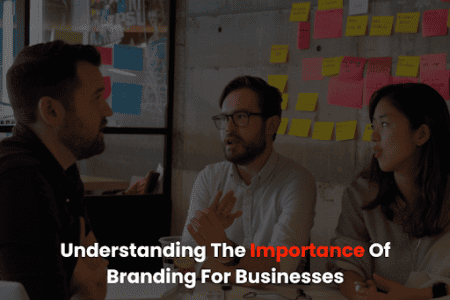
Paid Vs Organic Marketing Which Is Better?
Digital marketing is not one-size-fits-all. Brands often use different strategies to reach and emplo... Read more
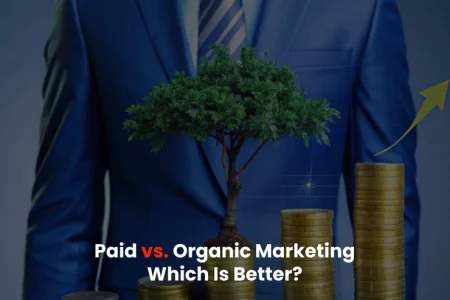
Elevate Your Marketing Strategy with Social Media Tips
With 94.2% of internet users using social media, it is no longer a choice for companies to have a di... Read more
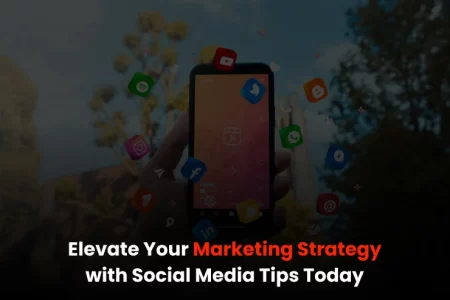
How To Build an Effective Content Marketing Strategy
Content marketing, which incorporates creating and sharing useful content with your audience, is a f... Read more
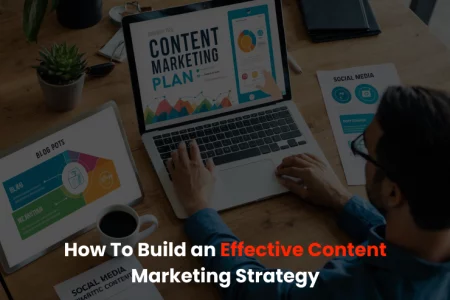
Ai Vs. Custom Graphic Design : Exploring The Best Approach T...
There is a lengthy debate on AI vs. custom graphic design. Here the question arises: whether Artific... Read more
